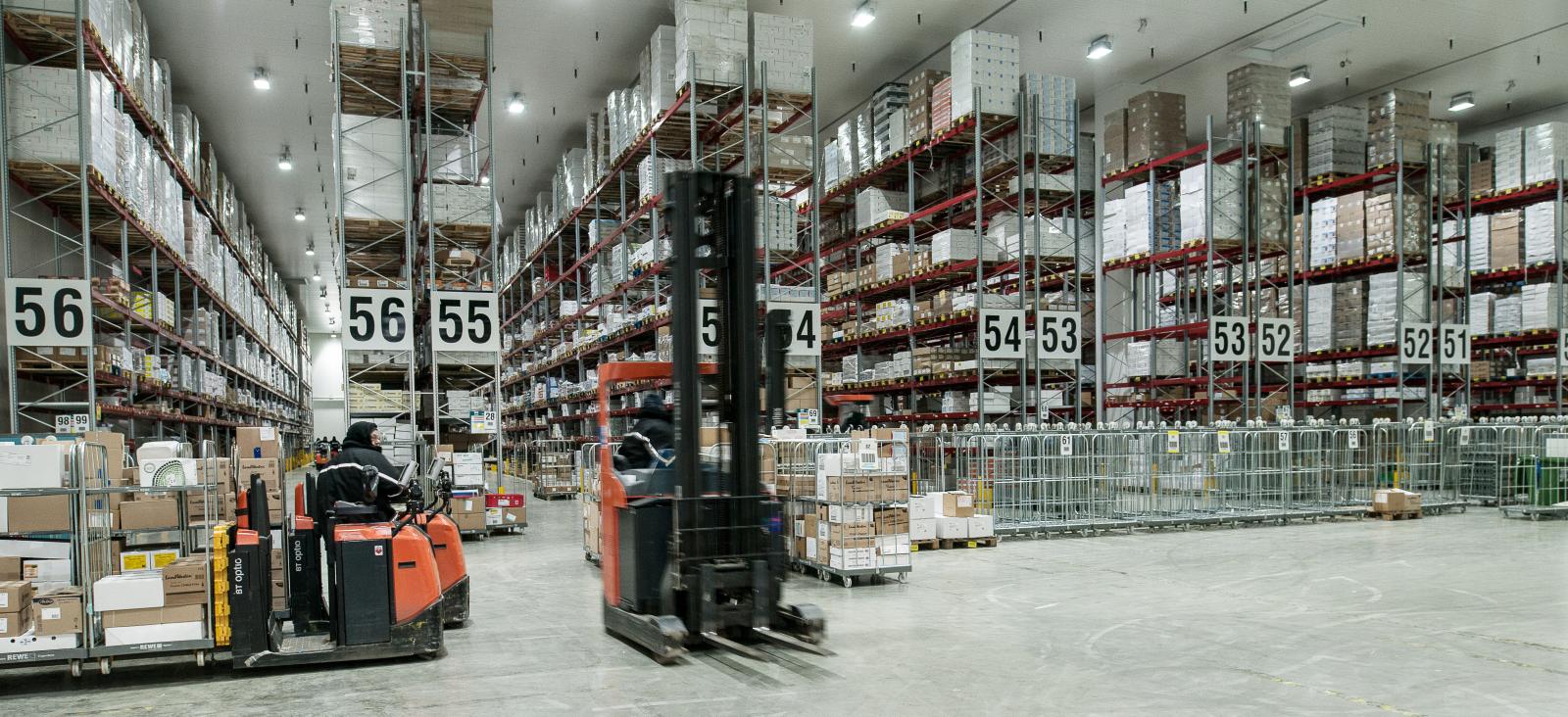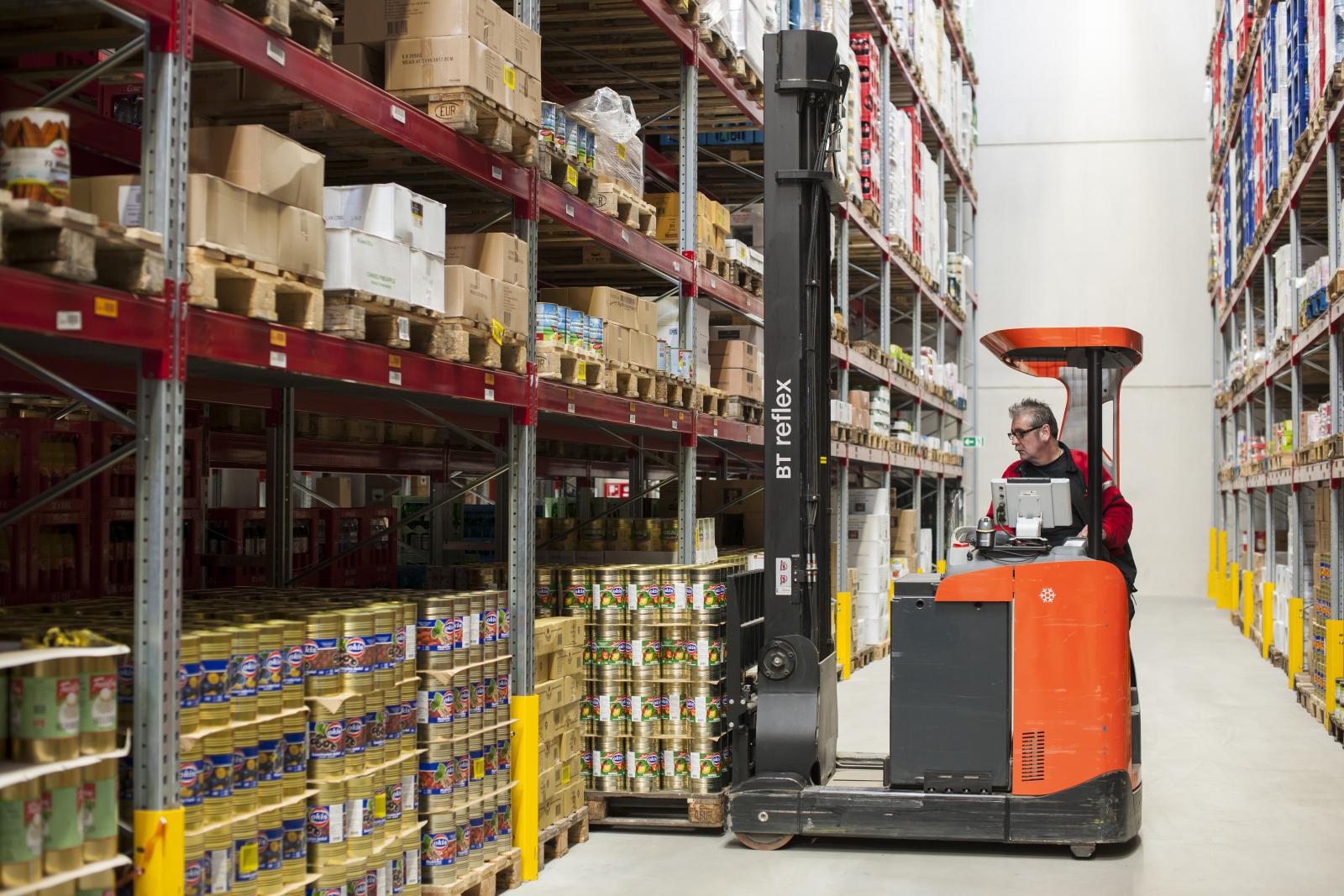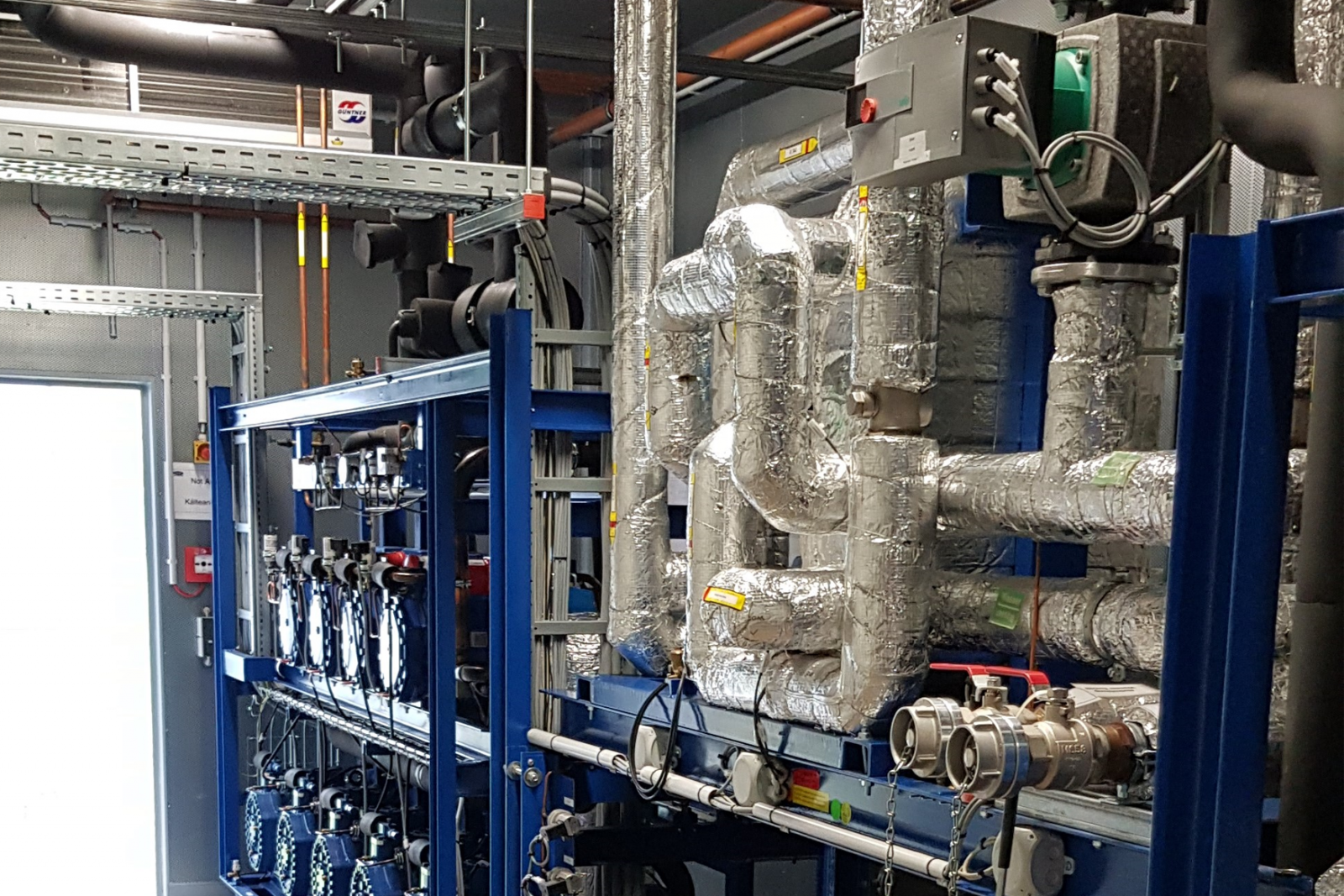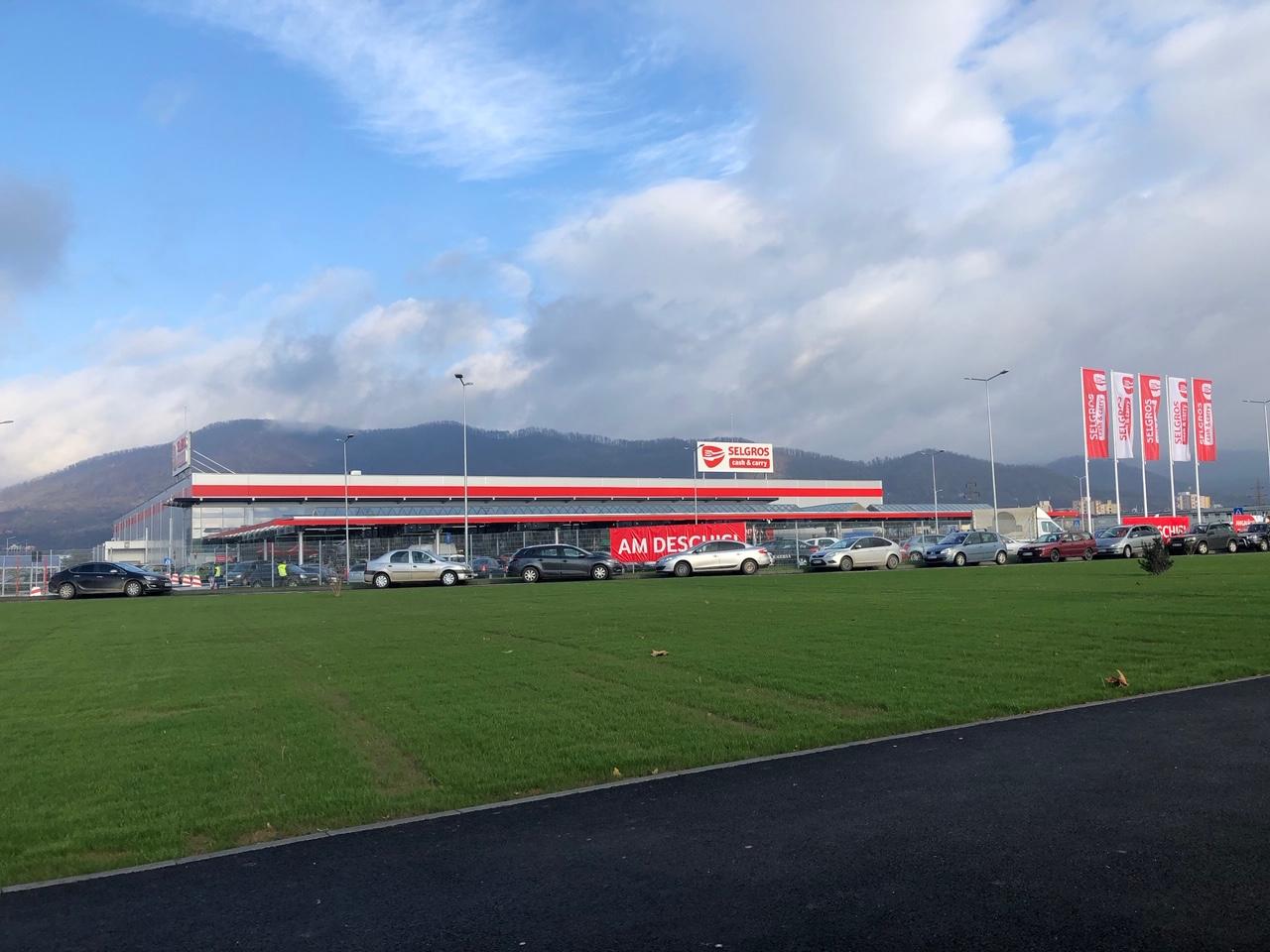Transgourmet
– on the way to becoming the most sustainable company in the industry
Numerous restaurants, hotels and canteens, social institutions and cruise ships are among Transgourmet's customers. The Coop subsidiary is the second largest company in the European food and non-food wholesale sector. When it comes to sustainability, however, Transgourmet aims to be number one in the industry. At its sites in Germany, Poland and Romania, it relies on the energy management system from econ solutions – and on comparisons.
Transgourmet's sustainability strategy is based on three pillars: 'responsible products and procurement', 'resource efficiency and climate protection' and 'good employer and social commitment'. In order to increase resource efficiency and thereby contribute to climate protection, the company decided to introduce energy management in accordance with ISO 50001. At that time, there were meters in some Transgourmet plants that could be evaluated, but neither at all locations nor as a coherent system. Consistent energy monitoring was therefore not possible. "That's why we looked at a few energy management systems. We opted for econ because it was the easiest to introduce and integrate," recalls Hans-Dieter Bruss, Authorized Signatory and Head of Technology+Facilities+Construction.
The econ system has a modular structure and essentially consists of the energy and power meter 'econ sens3', the data logger 'econ unit+ V2' and the energy management software 'econ4'. They can be combined as required, including with existing meters and other measuring devices as well as MDE/BDE and ERP systems from any manufacturer.
After just over a year, all 101 locations in Germany, Poland and Romania were equipped. "I would have liked to have been able to do this faster, but we were also dependent on our IT department and on the companies that carried out the electrical installation on site," reports Hans-Dieter Bruss. "What is really positive is that with the help of econ, we were able to integrate our existing meters, especially those of our energy supplier, as well as various KNX systems into the system, so that the energy-relevant data can also be automatically transferred from here to the econ4 software and evaluated."
In addition to the main meters, sub-meters were installed for the refrigeration systems, which account for the lion's share of electricity consumption at Transgourmet, namely almost 50%. All businesses have their own butcher's shop, and many also have a restaurant or bistro. These are not yet equipped with meters everywhere. "We are now gradually implementing this – fortunately, the econ system can be expanded," says Hans-Dieter Bruss.

Vergleiche zeigen Schwachstellen und sorgen für Effizienz-Wettbewerb
Aus den Messdaten liefert die Software econ4 den Gesamtenergieverbrauch pro Standort sowie die Anteile der Kälteanlagen und der anderen größeren Verbraucher. Das ist bei Transgourmet vor allem die Beleuchtung. Die Auswertungen nutzt der Energieverantwortliche in der Zentrale, um weitgehend baugleiche Standorte und Anlagen zu vergleichen. „So sehen wir sofort, wenn ein Betrieb oder eine Kälteanlage mehr verbraucht als die anderen. Ein Techniker vor Ort prüft dann, ob die Anlage gewartet werden muss oder ob ein Einstellungs- oder Bedienungsfehler vorliegt“, erläutert Hans-Dieter Bruss. So hat Transgourmet bereits einige Fehler an Kälteanlagen ausgemacht, die ohne das econ System erst viel später entdeckt worden wären, weil die Anlage sie noch nicht als Störung erkannt hat. Dann funktioniert sie noch einwandfrei, aber mit höherem Druck – und damit auch einem höheren Energieverbrauch – zum Beispiel weil der Verflüssiger auf dem Dach nicht rechtzeitig gereinigt wurde, weil ein Lüfter ausgefallen ist, ein Ventil nicht richtig arbeitet oder weil Einstellungen aus dem Ruder gelaufen sind.
Um auch einen Jahresvergleich der Verbrauchsdaten zu ermöglichen, hat Transgourmet im Außenbereich Temperaturfühler von econ im Einsatz, so dass die Verbrauchswerte der Kälteanlagen temperaturbereinigt vorliegen. Nimmt eine Anlage in einem Monat mehr Energie auf, obwohl es draußen genauso warm ist wie im selben Monat des Vorjahres, deutet das auch auf einen Defekt oder einen Fehler hin. „Diese Vergleiche sind sehr wichtig für uns und es hat sich schon gezeigt, dass wir durch schnelles Gegensteuern sehr viel im Sinne der Nachhaltigkeit tun können“, so Hans-Dieter Bruss. „Weil wir uns dabei selbst prüfen und eine Art Nachhaltigkeitswettbewerb zwischen den Betrieben aufbauen, werden wir auch immer besser.“
Zusätzlich zu den automatisiert übertragenen Messdaten nutzt Transgourmet die Werte von älteren Messstellen, die nicht über eine Schnittstelle verfügen. Diese werden manuell in econ4 eingegeben und fließen so ebenfalls in die Auswertungen ein. Dazu gehören auch historische Zählerwerte, die bereits vor Einführung der Energiemanagement Software gesammelt wurden. Sie bieten eine gute Vergleichsbasis.

Erfolgsfaktor Mitarbeiter
Manchmal findet die Wartungsfirma trotz erhöhtem Verbrauch keinen Defekt oder Verschleiß an der Anlage. Dann liegt meist ein Bedienungs- oder Nutzungsfehler vor, zum Beispiel dass Türen nicht richtig geschlossen werden. „Die Mitarbeiter sind ein ganz entscheidender Aspekt; es ist sehr wichtig, dass sie die Anlagen korrekt nutzen. Deshalb heißt unser Motto: schulen, schulen, schulen“, erklärt Hans-Dieter Bruss.
Zudem gibt es nicht nur in der Zentrale, sondern auch in jedem Betrieb Energieverantwortliche, die mit der Energiemanagement Software econ4 den Verbrauch vor Ort immer im Blick haben. Sie befassen sich mit allen Maßnahmen in ihrem Betrieb, prüfen Anregungen der Mitarbeiter und geben diese an die Zentrale weiter. „Für die Ideen der Kollegen sind wir sehr dankbar und sinnvolle Maßnahmen setzen wir selbstverständlich um.“

Nachhaltige Neuanlagen
Bei der Beschaffung neuer Anlagen legt Transgourmet ebenfalls viel Wert auf Energieeffizienz und wählt die nachhaltigsten CO2-Kälteanlagen, die es auf dem Markt gibt. Sie nutzen Flüssig-Ejektoren, mit denen sie rund 20% weniger Energie benötigen als vergleichbare Modelle älterer Generationen. „Da steckt sehr viel Technik drin – und je mehr Technik, desto fehleranfälliger ist die Anlage. Schon die geringsten Einflüsse können sich auf ihre Funktion und damit auf den Verbrauch auswirken. Die stetige Überwachung mit dem econ System ist deshalb umso wichtiger“, erklärt Hans-Dieter Bruss.
Die bisher erzielten Energieeinsparungen zu beziffern, ist laut Hans-Dieter Bruss kaum möglich, weil sich durch Corona das Verbrauchsverhalten stark geändert hat: Bei den sogenannten Cash & Carry Betrieben, in denen Kunden die Waren abholen, ist die Frequenz gestiegen, dagegen ist sie bei den Zustellbetrieben gesunken. Diese beliefern die Großgastronomie und Kantinen, die Corona-bedingt seit Monaten weitgehend geschlossen sind. Dennoch zieht Hans-Dieter Bruss ein positives Fazit: „Wir haben auf jeden Fall schon einige Prozent an Energie eingespart, obwohl wir noch nicht alle Betriebe komplett ausgestattet haben und das System noch nicht vollumfänglich nutzen.“

Über Transgourmet Central and Eastern Europe (www.transgourmet.de)
Zur Ländergesellschaft Transgourmet Central and Eastern Europe mit Sitz im hessischen Riedstadt zählen Unternehmen in Deutschland, Polen, Rumänien und Russland. Hierzulande sind unter der Dachmarke „Transgourmet Deutschland“ der Marktführer im Belieferungsgroßhandel „Transgourmet“ und der Abholgroßhandel „Selgros Cash & Carry“ vertreten. Hinzu kommen weitere spezialisierte Unternehmen wie EGV, Frischeparadies, gastronovi, GEVA, Global Foods, Niggemann, Sanalogic, Sump & Stammer und Team Beverage mit einem breiten Leistungsangebot für die Kunden. Als Multi-Channel-Anbieter ist Transgourmet Central and Eastern Europe der Abhol- und Belieferungsgroßhandel für Kunden aus Gastronomie, Hotellerie, Betriebsverpflegung, sozialen Einrichtungen, Einzelhandel und weiteren Gewerben.